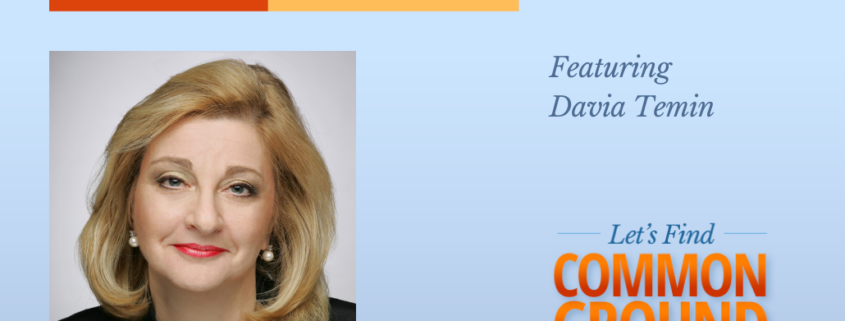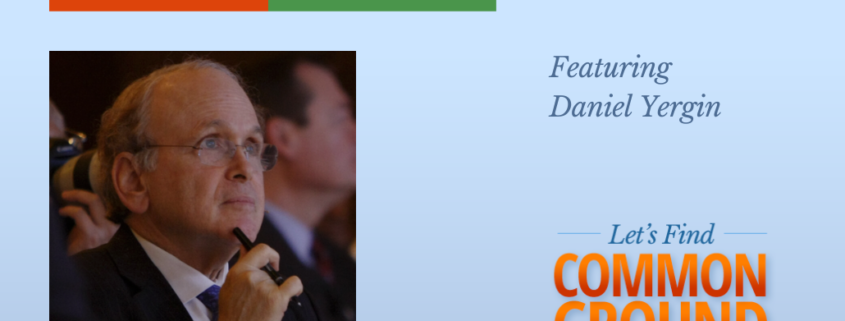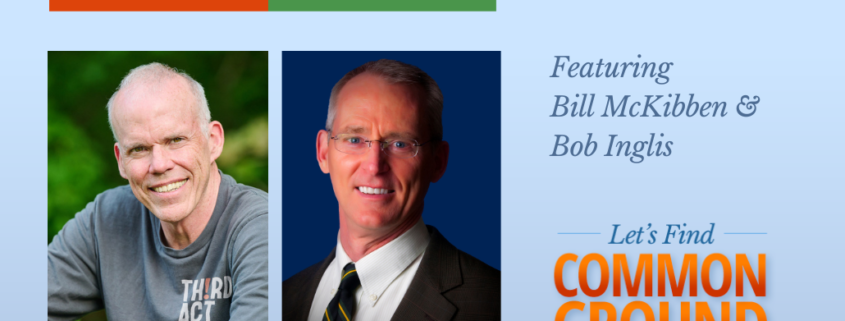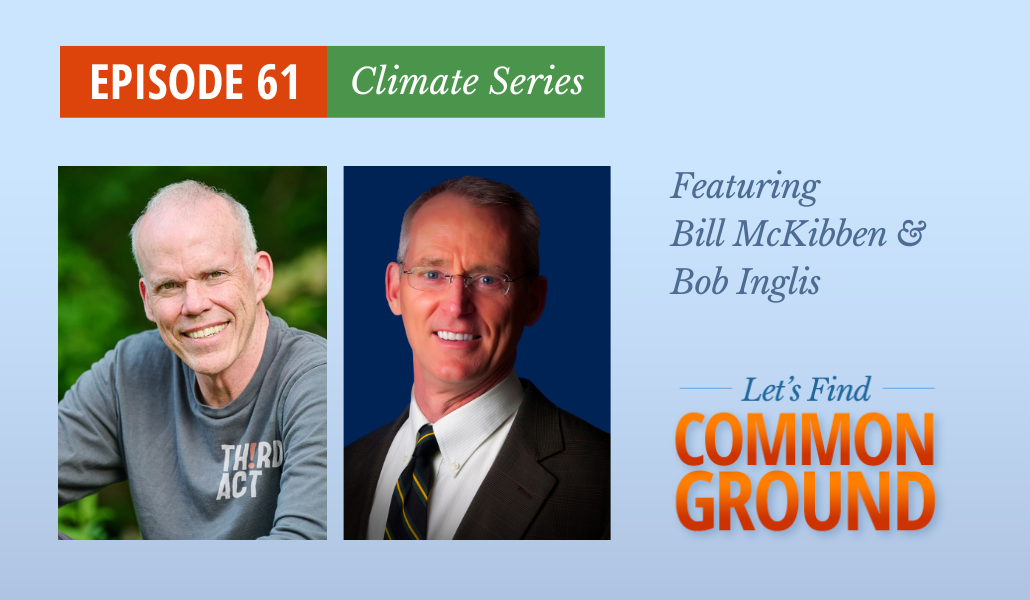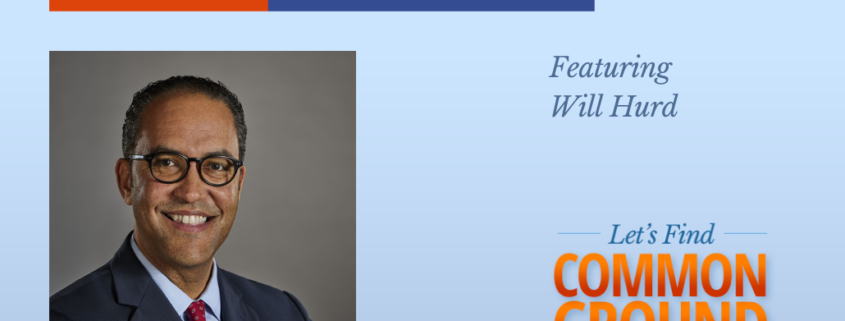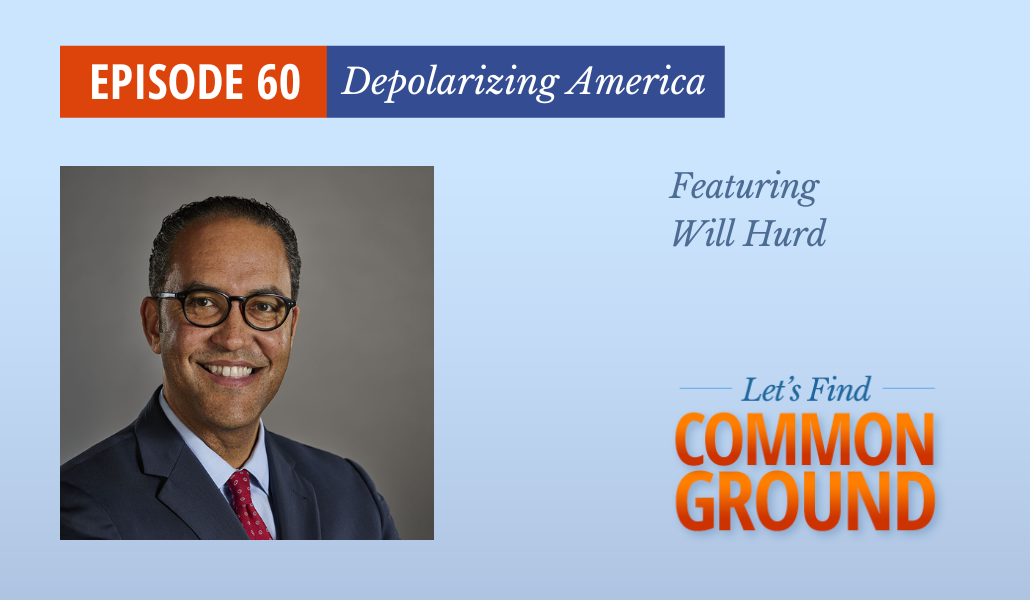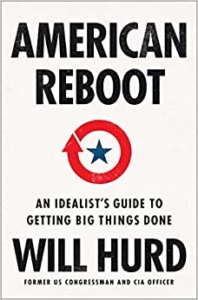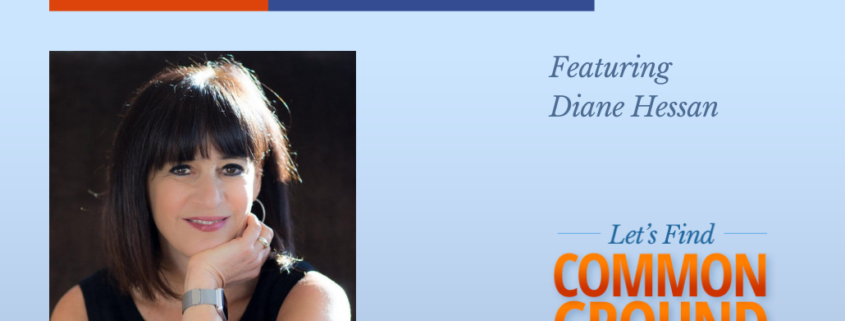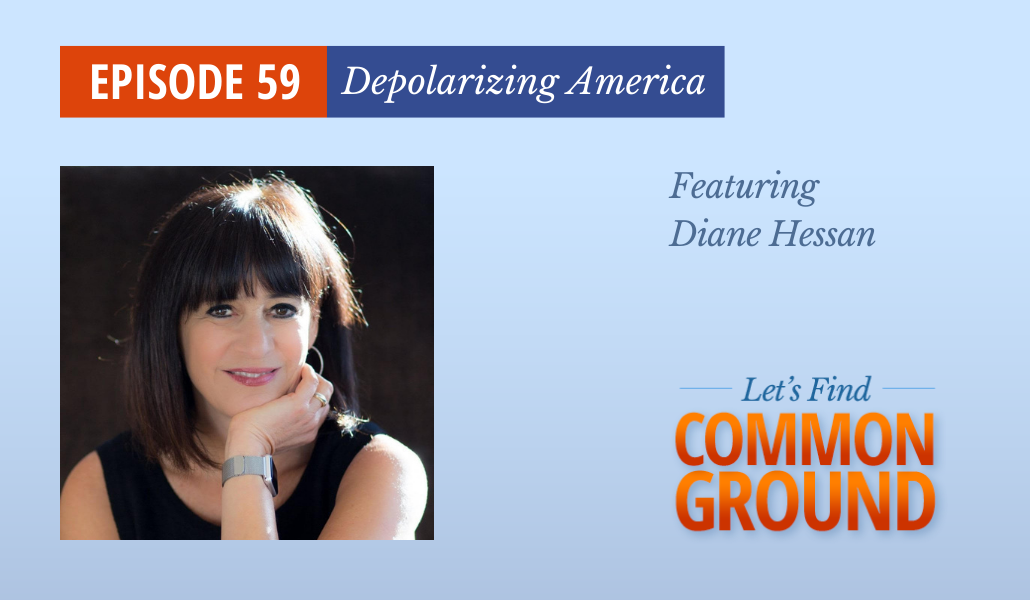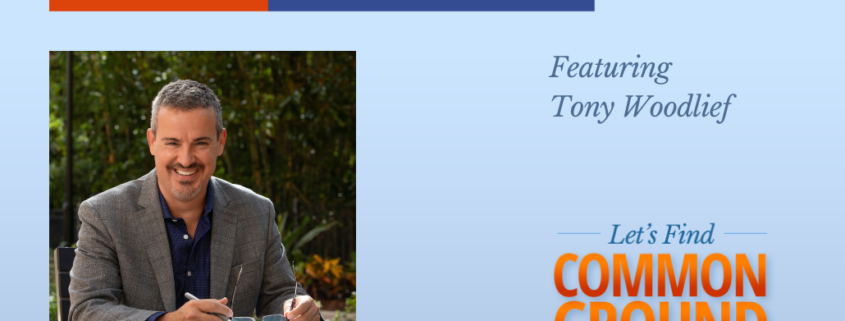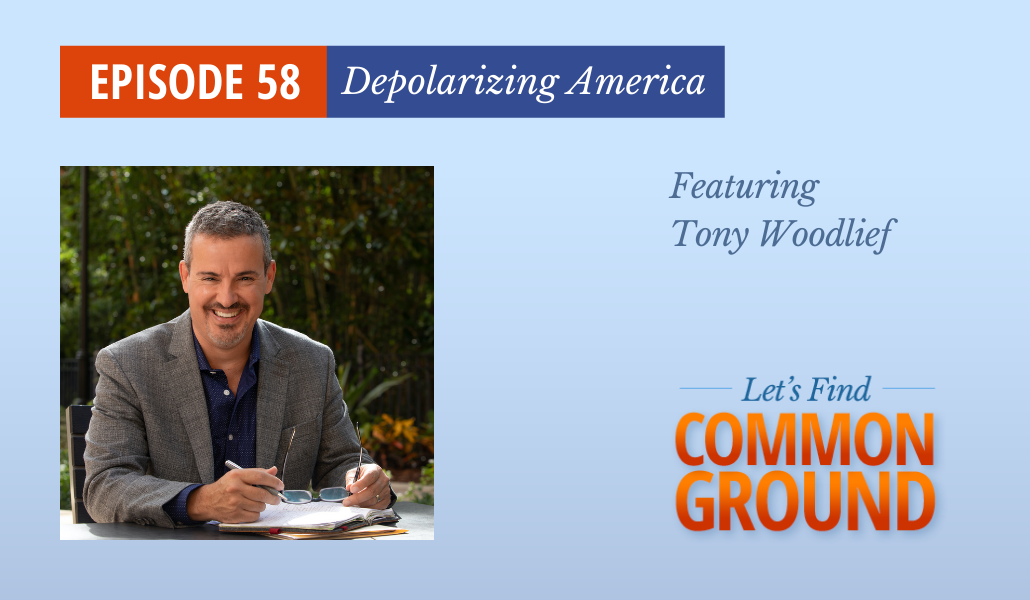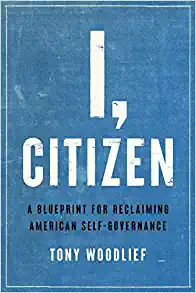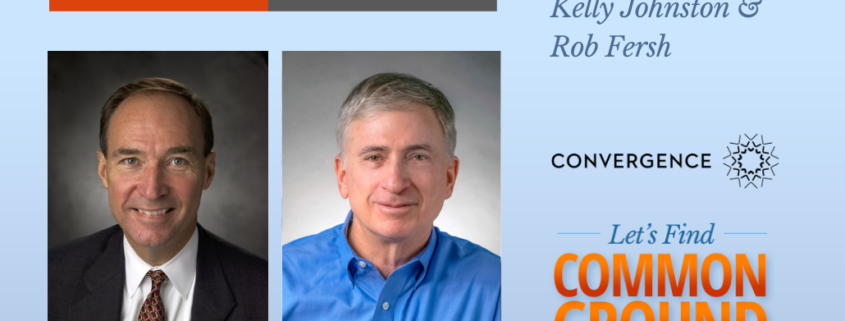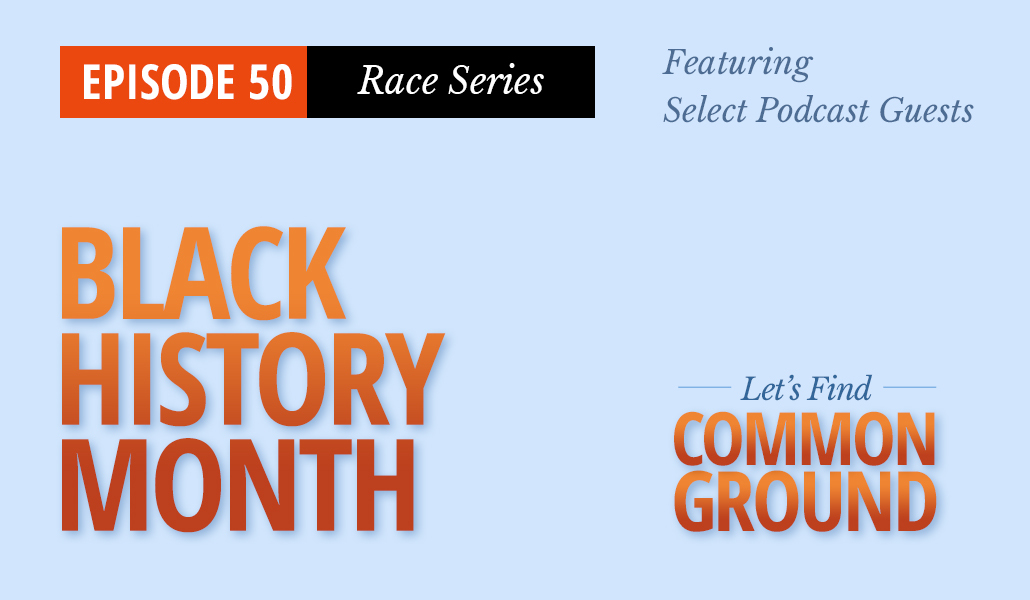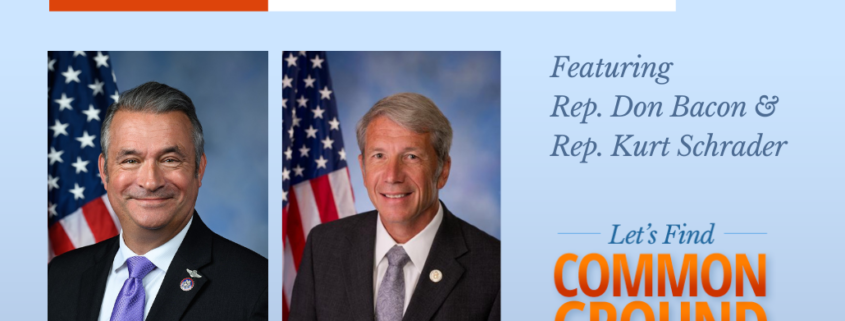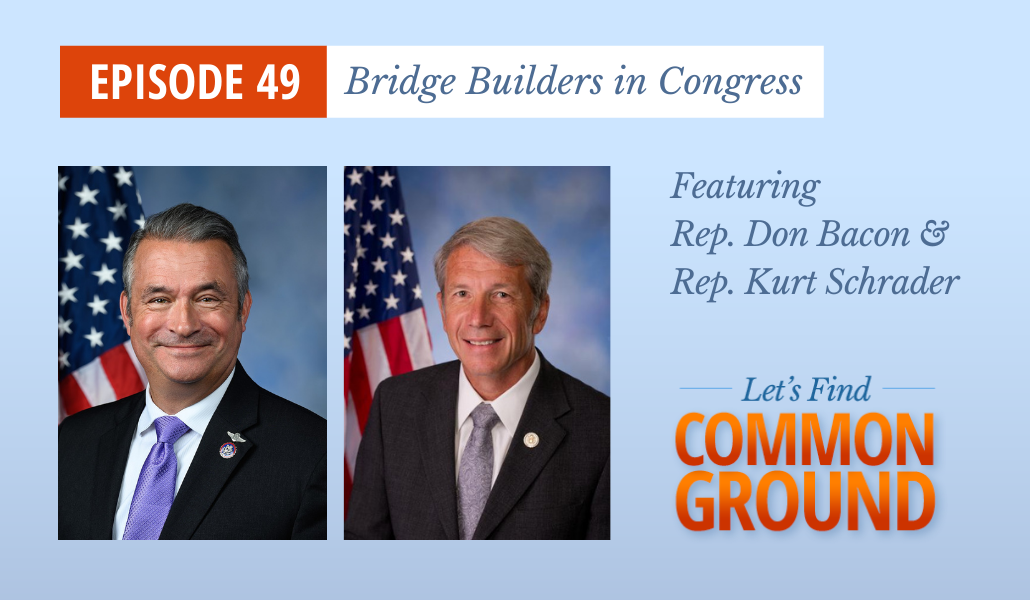
As Congress and the American people have grown more polarized, legislation has become increasingly gridlocked and political rhetoric more extreme. Can the country’s “exhausted majority” be mobilized to lead the country back to common ground?
In this final installment of our three-part blog series on how to fix polarization, Common Ground Committee talks with co-founders Erik Olsen and Bruce Bond about what it will take to dial back division and get Congress back to work for the people.
There’s a level of emotion, call it heat or call it hate, that comes into disagreements about almost any issue these days. How can we dial back from code red to code orange or yellow?
Erik Olsen: Well, what’s implicit in the question is, why is that the case? We’ve had differences of views in the past, but we haven’t had the degree of antipathy towards one another that we have today.
First of all, I would take the position that the way Washington conducts itself right now exacerbates that problem because it tries to say to the voting base, “We have to have our way on everything we want, or you’re not going to get anything you want.” So they have to have a majority in everything in order to get the agenda in office that they want to get accomplished.
That’s where I think looking to congressional representatives who come to the table with different perspectives makes a difference. One is a Republican. One’s a Democrat. And they say, “We come to the table with different perspectives. Let’s share those perspectives and see how we can craft legislation that finds at least a measure of agreement on each side.”
Also, there are issues that I think are presented in a polarizing manner that don’t need to be. Vote-by-mail is one of these. Vote-by-mail is intended to allow more people to vote. If one party has a problem with having more people vote, then the problem is not with the voting process. It’s with the message that they’re getting out to people. That’s what they need to focus on, not, “How do we get less people to vote?”
Bruce Bond: And there are a lot of voters who are supporting mechanisms that need to be addressed. We’ve got gerrymandering, that’s a problem, and you’ve got the money that goes to PACs, the propaganda out there that’s so negative toward opposing candidates, and that kind of thing.
So those are some things that need to be addressed. The executive order system just goes back and forth like a ping-pong, that the Republican executes some executive orders, and then the Democratic successor reverses them and vice-versa. And that just continues to cause anger, if you will, between the different parties. That is happening right now with the former and new administration.
So how do you convince an electorate that’s tired of all the anger to get up off the couch and care again, to vote?
Bond: Like I said, I think that shift from the silent majority to the exhausted majority is profound in that we now have an emotional element in the issue that we didn’t have before. The silent majority was sort of like, “Yeah. I don’t care,” if you will, they were apathetic. But when you have an exhausted majority, people are saying they’re fed up. They don’t want this anymore. They want change, and that’s the soil in which the good seed can grow.
Olsen: That’s the point, that changing voter behavior or influencing voter behavior is the most effective thing to do. The NRA’s influence, for example, is based on their effectiveness in reaching their members and saying, “Your right to own a gun is in jeopardy, and here’s what you need to do about it.” Experienced Congresspeople on our panels have stressed their educated view that this is the most effective thing that goes on in Washington – how you encourage people to vote the way you want them to, how you influence them to vote.
Bond: What you really need to do is get people out to vote for the candidates who are going to support those positions they have in their protests. So it’s all well and good to go out and protest and be with your friends and feel good about doing that. But it doesn’t amount to a hill of beans if you don’t get people to actually vote the way you want them to.
Olsen: Our view of the election results is that there was a huge turnout. It’s the largest voter turnout in 110 years or something like that, and it was a very close election. But what was significant is that Donald Trump lost, and yet Republicans generally, and Republican issues generally, won.
What that indicates to us is that, first of all, the country is pretty evenly divided in terms of their interests, and number two, that Republican voters, at least, were willing to split the ticket and support a polarizer–if I can use that term that way–like Donald Trump who’s just making the entire situation worse. He’s not interested in common ground. They were willing to vote him out of office, and also to reduce the Democratic majority in the House, because their interests of a right-of-center policy remain fairly strong.
It’s likely the Republicans might have kept the Senate had President Trump not pushed his view that the election was rigged and tried to intimidate state officials. So, unless you can sit down with people and say, “Let’s figure out how to work together to craft legislation,” you’re not going to get anywhere. You’re just going to continue to be in gridlock.
Bond: You can tweet Congress as much as you want, but you have to drive the cultural change, which is where we’re focused—we’re not focused on things like gerrymandering and all those other things. If you drive the cultural change where voters stand up and say, in so many words, “You know what? We’re as mad as hell, and we’re not going to take it anymore,” then they’ll start supporting candidates that are common grounders.
There’s critical mass in this country where enough of the population says, “We’ve been doing this, and it’s wrong. We shouldn’t be doing this anymore.” And that becomes the culture of the nation. That number, research suggests, is 11 million people.
We have 330 million people in this country. So 11 million is not that large a number. It’s not inconsequential, it’s not just a drop in the bucket, but it is interesting how that’s a tipping point in cultural change. So, if we can help people get there—and our work suggests that we can, and we are doing that—we’re getting people to see that these things are possible, that they should expect other than what they’re getting from their leaders, now you’re on to something.
Don’t miss the earlier installments of our three-part blog series on how to fix polarization, with a look at the current political dynamic and strategies that can lead to more progress and less division.


